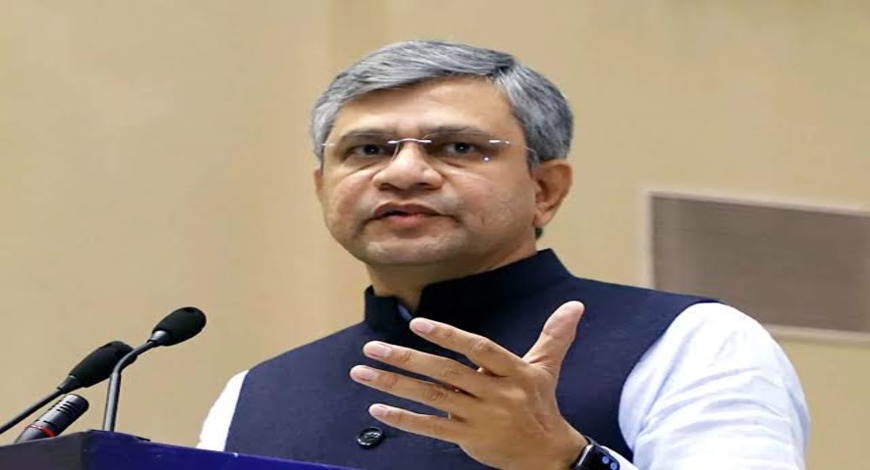New Delhi: Union minister Aswhini Vaishnaw has retained electronics and IT portfolio where he has scripted success stories around electronics and semiconductor manufacturing and also spearheaded the enactment of crucial Digital Personal Data Protection Act.
Vaishnaw has also retained the railway ministry and got the additional charge of the Information and Broadcasting ministry.
An IIT Kanpur alumni, the bureaucrat-turned-politician has had an action-packed stint in the Modi 2.0 government and will need to build on the past momentum which are crucial to make India’s electronic and IT sector ‘Atmanirbhar’ (self-reliant) .
Mobile phone manufacturing during Vaishnaw’s tenure crossed Rs 4.1 lakh crore worth of production mark, which is a 21-fold jump in production level compared to that in 2014-15, when 98 per cent of local demand was met through imports. The country now meets 97 per cent of its total mobile phone demand locally.
Among the pending issues Vaishnaw would have to work out the enabling rules to implement Digital Personal Data Protection (DPDP) Act and also give shape to the proposed Digital India Act, which will supersede the over two decades old IT Act.
The DPDP Act was approved by Parliament in August last year after six years of the Supreme Court declaring ‘Right to Privacy’ as a fundamental right, and has provisions to curb the misuse of individuals’ data by online platforms.
The DPDP Act has the provision to set up an independent Data Protection Board (DPB), which will provide similar access to justice to people across the country.
The Ministry of Electronics and IT (Meity) has been working on the draft Digital India legislation that would provide guard rails and prescribe regulatory approaches for new-age technologies like artificial intelligence.
The proposed DIA would also be crucial as it seeks to provide safeguards against newer forms of cyber crimes, including deepfakes, catphishing, doxing, cyber trolling etc.
Vaishnaw has been instrumental in getting global storage semiconductor firm Micron to set up a chip assembly plant followed by two investments from indigenous conglomerate Tata to set up a chip manufacturing plant in Gujarat and an assembly unit in Assam.
A fourth unit has been set up by CG Power in partnership with Renesas Electronics Corp and Stars Microelectronics in Gujarat.
While the journey for semiconductor manufacturing has just started in the country, Vaishnaw has an uphill task of ensuring that India’s ambitions in chip making capabilities also feed its AI aspirations –- a segment which is dominated by the US and China at present.
Before heading for 2024 general elections, the Modi 2.0 government has approved an allocation of over Rs 10,300 crore for the IndiaAI Mission to bolster India’s AI ecosystem.
The approved substantial financial infusion, slated over the next five years, is poised to catalyse various components of the IndiaAI Mission, including pivotal initiatives like the IndiaAI Compute Capacity, IndiaAI Innovation Centre (IAIC), IndiaAI Datasets Platform, IndiaAI Application Development Initiative, IndiaAI FutureSkills, IndiaAI Startup Financing, and Safe and Trusted AI.
Meanwhile, the industry hoped that with Vaishnaw retaining this key ministry, the policy momentum will continue.
“Industry is extremely satisfied with Hon’ble PM decision of continuing key portfolios with existing ministers. The ‘continuity’ in policy making, governance approach and key priorities across the Finance, Commerce, Meity and environment ministry is critical to investor confidence and growth,” ICEA Chairman Pankaj Mohindroo said.
He said that the industry is geared up for the 5-year sprint till 2030 on the way to transforming India into a global hub for electronics manufacturing and ‘Viksit Bharat’ (developed India).







